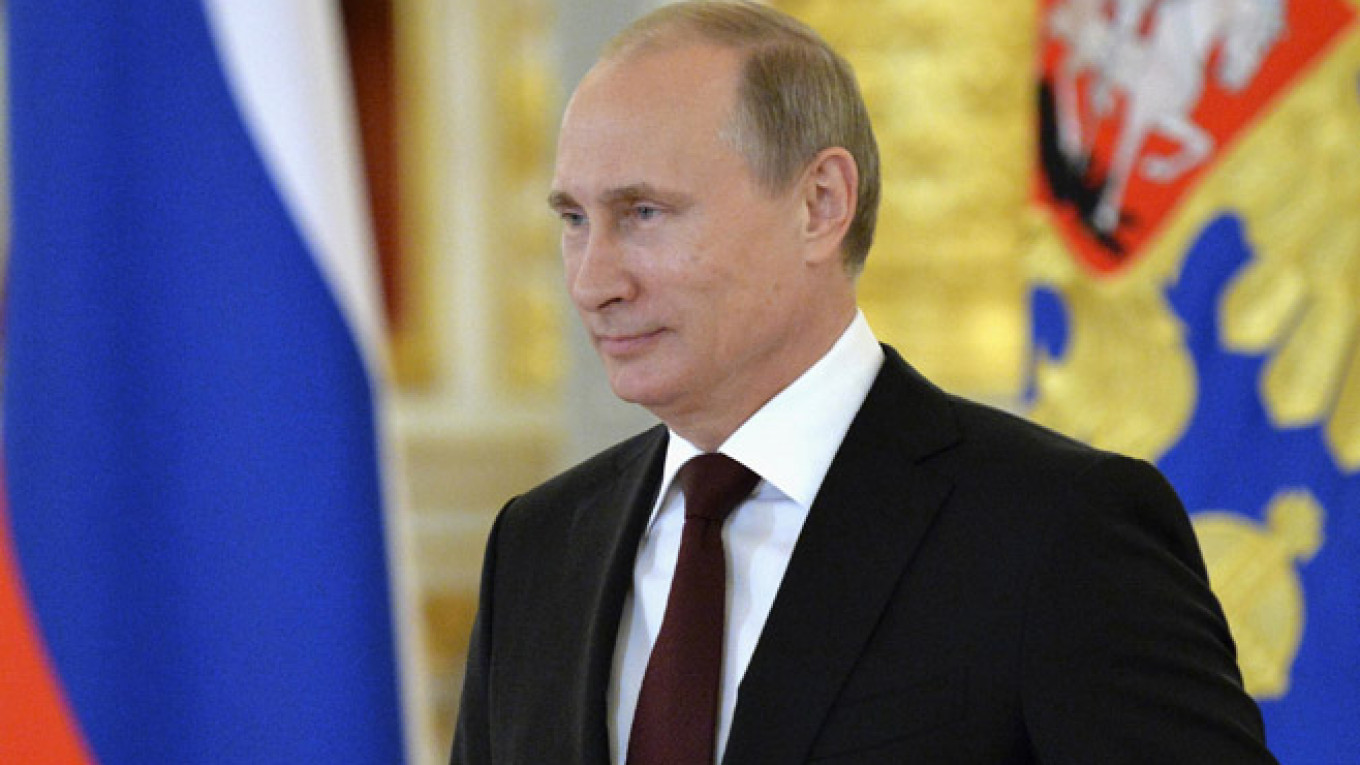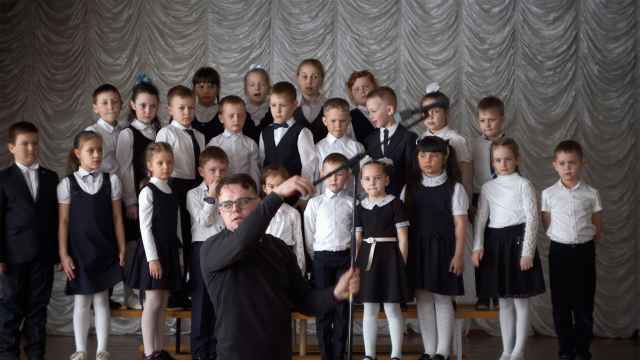Three former Soviet republics — Georgia, Moldova, and Ukraine — have now signed association agreements with the European Union, despite Russia's sometimes brutal attempts to obstruct the process. This is certainly a promising development for these countries, all of which have struggled to achieve stability since the Soviet Union's dissolution. But it would be naive to think that Russia will give up so easily.
As Ukraine's ongoing crisis has demonstrated yet again, former Soviet republics that attempt to make geopolitical decisions without the Kremlin's assent do not remain intact for long. In Georgia, the breakaway regions of Abkhazia and South Ossetia have had de facto independence since receiving Russian recognition in 2008. Today, the prospect of their return seems more distant than ever.
Kyrgyzstan, one of the poorest post-Soviet countries, has spun closer into Russia's orbit.
For its part, Moldova has been struggling for two decades to assert control over the self-proclaimed Transdnestr republic. Moreover, in February, the tiny autonomous region of Gagauzia, with its indigenous Turkic population, announced through a Russia-backed referendum that it has the right to secede if Moldova "loses its statehood." The danger now is that pro-secession leaders may twist the loss of sovereignty supposedly inherent in association with the EU into precisely such a claim.
And though some countries have persevered in the face of Russia's threats to bring separatist, ethnic, or other problems to their doorstep should they choose integration with the EU, others have responded to the pressure. In September, Armenia, which has been locked in a conflict with neighboring Azerbaijan over the breakaway region of Nagorno-Karabakh for more than two decades, suddenly halted its integration talks with the EU and announced its intention to join Russia-led structures.
But Moscow is doing far more than just discouraging former Soviet republics from pursuing deeper ties with the EU. Russia is creating parallel and competing organizations to the West, as evidenced by the recently established Eurasian Economic Union. In May, the leaders of Russia, Belarus, and Kazakhstan established the EEU by signing a treaty that will enter into effect next year, assuming that all three countries' parliaments ratify it.
President Vladimir Putin has insisted that the EEU is not intended to function as a "resurrected" Soviet Union, but that any former Soviet republic is free to join. And some are eager to do so. According to a recent poll, some 80 percent of Kazakhs support Putin, and about 70 percent back Kazakhstan's EEU membership.
Others, perhaps, are less eager than desperate. Kyrgyzstan, one of the poorest post-Soviet countries in Central Asia, has recently spun closer into Russia's orbit by declaring its intention to join the Customs Union that preceded the EEU by the end of this year.
The country also closed the U.S. military transit center near Bishkek in early June. In 2009 the Kyrgyz government sought to evict the U.S. from the center immediately after receiving a $2 billion loan extension from the Kremlin. The U.S. held on to the site by upping its rent payment and paying for extensive renovations, but Bishkek recently made it clear that the lease, up this year, could not be renewed.
The Kremlin is also using other, less overt mechanisms to exert additional pressure on former Soviet republics to bend to Russia's will. Russia's Foreign Ministry has just announced that, as of Jan. 1, citizens of post-Soviet countries that are not members of the Customs Union and the EEU will no longer be allowed to enter Russia without passports.
This will likely soon be followed by visa requirements for these countries' citizens, which for some would pose a major challenge. For example, the remittances that the estimated 1.5 million Tajiks who live and work in Russia send to their families back home are critical to Tajikistan's economy, making up nearly half of the nation's GDP.
Likewise, in April, Putin signed into law a bill that relaxed the requirements for obtaining Russian citizenship for former residents of the Soviet Union. The law, enacted just a month after Russia's annexation of Crimea, was undoubtedly intended to provide a legal basis for expediting the citizenship-application process for residents of Crimea and the rest of eastern Ukraine.
However, it may enable millions of other Russian-speaking citizens of EEU member countries to become Russian citizens. It could also be used to apply pressure on countries like Estonia and Latvia, which have large populations of ethnic Russians who originally settled there in the Soviet period.
Economic advancement does not appear to be on the agenda for the EEU, though, which may be its fatal flaw. At a recent Eurasian Economic Commission session in Sochi, Belarus and Kazakhstan rejected the Kremlin's proposal to introduce customs duties for goods imported from Ukraine if the country signed the EU Association Agreement. The Belarussian government considers it to be Ukraine's sovereign right to sign agreements with the EU, a flat contradiction of Russia's stance.
Unless it somehow manages to deliver tangible economic benefits anyway, the EEU seems destined to become another failed institutional initiative, like the Commonwealth of Independent States, the Russian-Belarussian Union State, or the Central Asian Union. But, as it stands, the EEU seems to be moving closer to two other major Russian goals: to obstruct the integration of former Soviet republics into the West, and to help secure Putin's power in Central Asia.
Merkhat Sharipzhan is a senior editor and analyst with Radio Free Europe/Radio Liberty. Copyright: Project Syndicate, 2014.
A Message from The Moscow Times:
Dear readers,
We are facing unprecedented challenges. Russia's Prosecutor General's Office has designated The Moscow Times as an "undesirable" organization, criminalizing our work and putting our staff at risk of prosecution. This follows our earlier unjust labeling as a "foreign agent."
These actions are direct attempts to silence independent journalism in Russia. The authorities claim our work "discredits the decisions of the Russian leadership." We see things differently: we strive to provide accurate, unbiased reporting on Russia.
We, the journalists of The Moscow Times, refuse to be silenced. But to continue our work, we need your help.
Your support, no matter how small, makes a world of difference. If you can, please support us monthly starting from just $2. It's quick to set up, and every contribution makes a significant impact.
By supporting The Moscow Times, you're defending open, independent journalism in the face of repression. Thank you for standing with us.
Remind me later.






